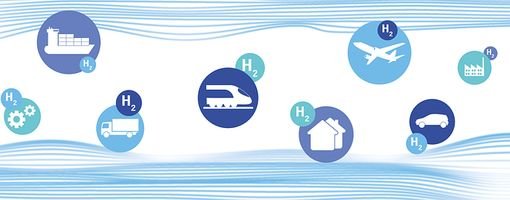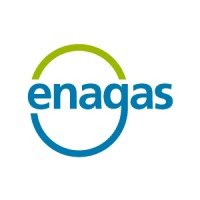Hydrogen Market Review
Several partnership agreements have been inked to support the hydrogen economy.

In Europe, Port of Rotterdam, Netherlands, announced a partnership with Horisont Energi, Norway, to develop a blue ammonia shipment corridor between Norway and Netherlands, which would be further extended to Northwestern Europe. Blue ammonia will be produced at Horisont through the Barents Blue project, which is expected to start production around 2022 and export to Rotterdam is expected to start around 2025. The production capacity of the Barents Blue project is expected to be about 1 Mt/y.
In Spain, Repsol, Petronor and Bosch have signed an MoU to develop joint projects to advance Spain’s renewable hydrogen value chain. The projects will cover end-users such as mobility, industry and residential buildings. The agreement is part of the partners’ commitment to achieving net-zero emissions by 2050, and it is also in line with the guidelines of the Paris Agreement and the United Nations Sustainable Development Goals.
In the UK, Anglo Americans partnered with Salzgitter Flachstahl to reduce carbon emissions from the steelmaking process through various ways. Both companies will initially research feed materials, such as iron ore pellets and lump iron ores, which are used in direct reduction (DR) steelmaking. The DR steelmaking process is based on hydrogen and natural gas and emits less emission than the conventional blast furnace (BF) process. Later on, the companies will also work on broader hydrogen technologies in steelmaking.
Bp has agreed with CF Fertilisers, Mitsubishi Chemical Corporation, Sembcorp Energy UK and Alfanar Company to support blue hydrogen. The partners will use hydrogen for various purposes such as chemicals, aviation fuels to reduce emissions and generate power.
Italy’s Walter Tosto has joined European Clean Hydrogen Alliance. It will work with other alliance members to support hydrogen across various industries and help the Alliance achieve its goals set by the European Commission.
In Asia, Japan’s Eneos Corporation has signed an agreement with Neoen Australia Pty Ltd, under which both companies will conduct a study to develop a CO2-free hydrogen supply chain between Japan and Australia. The study will focus on the potential for a stable supply of hydrogen, through ships, from South Australia, where it will be produced through renewable energy sources. Neoen will focus on renewable energy supply for hydrogen production, while Eneos will be focused on the production and transport of methylcyclohexane (MCH), an efficient form of hydrogen storage and transport.
In India, researchers from the Indian Institute of Technology Bombay (IIT Bombay) have demonstrated a new magnetised catalyst that can speed up hydrogen production by using less energy. The study was also supported by the Science and Engineering Research Board, the Council of Scientific and Industrial Research and the Industrial Research and Consultancy Center.
In China, Sinopec has announced that it has transported around 200 tonnes of hydrogen to Shanghai. Hydrogen would play an important part in meeting the demand of Shanghai’s hydrogen energy market. The daily transport of hydrogen is estimated to be around 2,000 kg. It is estimated that about 40,000 vehicles have been refuelled from the supplied hydrogen.
In Indonesia, PT Pupuk Indonesia (Persero) and Pertamina NRE (Pnre) partnered for the development of hydrogen and energy supply. The partnership also involved developing technological facilities and equipment for the production and commercialisation of ammonia by using hydrogen as a raw material. The partnership is in line with both companies net zero-emission targets. Previously, Pertamina NRE also signed agreements with various parties to develop Carbon Capture Utilisation and Storage (CCUS) technology.
In the US, Southern Company Gas, Electro-Active Technologies and T2M Global previously partnered to produce clean hydrogen from waste materials project, which is known as the Hydrogen Energy EarthShot initiative. The project has also got funding from the US Department of Energy’s (DoE) for its development. DoE awarded $1 million to Southern Company research and development for its clean hydrogen project.
In UAE, Abu Dhabi National Oil Company (Adnoc) supplied its first cargo of blue ammonia to Itochu, Japan. The supply by Adnoc was made in collaboration with Fertiglobe. The ammonia provided will be used in the production of fertiliser. The ammonia was sold based on a joint effort between UAE and Japan, which was announced earlier, to develop ammonia supply chains between both countries.
In New Zealand, Murihiku Regeneration and Fortescue Future have announced a partnership, under which both companies would work on the development of a large scale, renewable green hydrogen production plant in Southland, New Zealand. The project is now under the initial assessment and investment decision phase, and it is expected to start production in early 2025.
In the Netherlands, the student innovation team from the Delft University of Technology, known as AeroDelft, announced preparation for the flight testing of their hydrogen aircraft Phoenix PT. The aircraft is unmanned and will initially work on electric batteries, but later the aircraft will be converted to run on gaseous hydrogen and subsequently on liquid hydrogen. The team also announced the development plans for a piloted hydrogen aircraft called Phoenix FS, which will be built around four-seat Sling 4 kit-built aircraft.
In Spain, the Technological Institute of Galicia (ITG) and the National Institute of Aerospace Technology (INTA) partnered to use hydrogen as an alternative source to power up drones. The drones will be equipped with a fuel cell which will provide the necessary power from green hydrogen to run the engine. The partnership will develop the availability of drones in high-density flight situations. Both institutes are working to develop an automated hydrogen refuelling network, which will decrease recharging time.
Three Japanese companies Kawasaki Heavy Industries, Ltd., Yanmar Power Technology Co., Ltd., and Japan Engine Corporation, have established a new company known as HyEng Corporation. The aim is to accelerate the decarbonisation in Japan and also to develop the marine sector. The newly developed company will be focused on the production of marine hydrogen-fuelled engines. Some of the other activities that the joint company will perform include developing rules and standards for hydrogen fuel supply systems and maintenance and operation of hydrogen fuel engine demonstration facilities.
In the US, Hyundai Motor has made a Series-B investment in Pajarito Powder. The intention behind the investment of Hyundai is to expand its presence in the hydrogen market and strengthen its establishment in the hydrogen ecosystem.
The UK based company Baxi Heating demonstrated its 100% hydrogen-based boiler in the UK’s first hydrogen house. The two pilot hydrogen houses, located at Low Thornley, near Gateshead, are purposed built to demonstrate hydrogen-based appliances in the real world. The hydrogen boilers are part of Baxi’s mission to produce low carbon energy products from 2025. The domestic boiler based on hydrogen was first introduced in 2019 by BDR Thermea Group, Baxi’s parent company.
